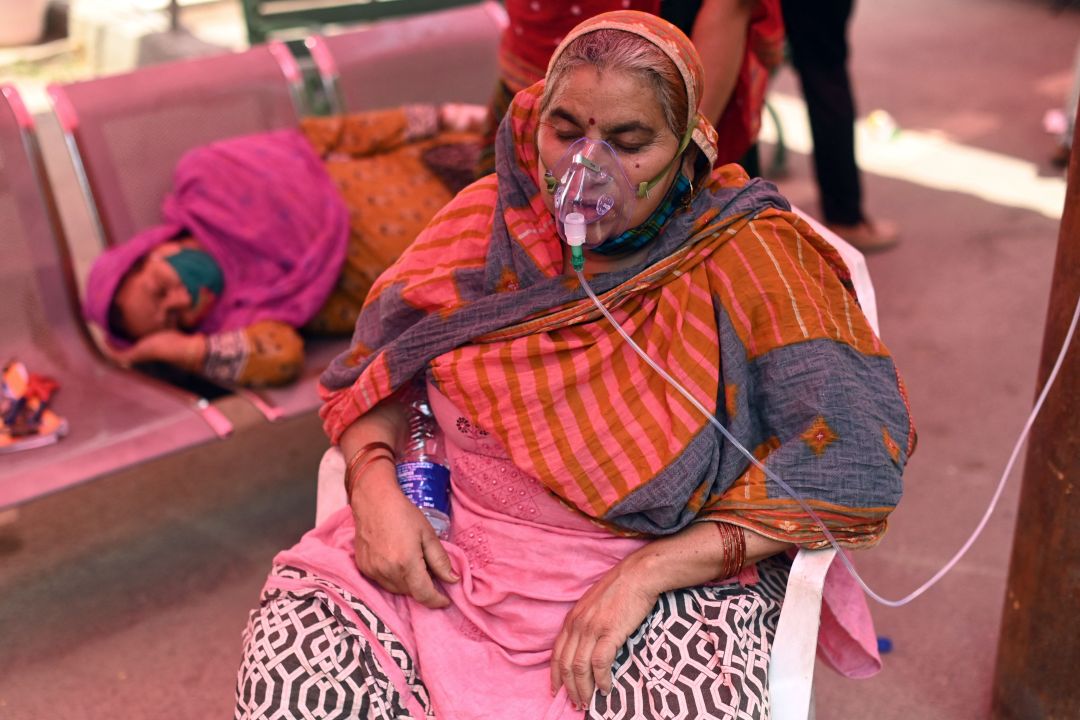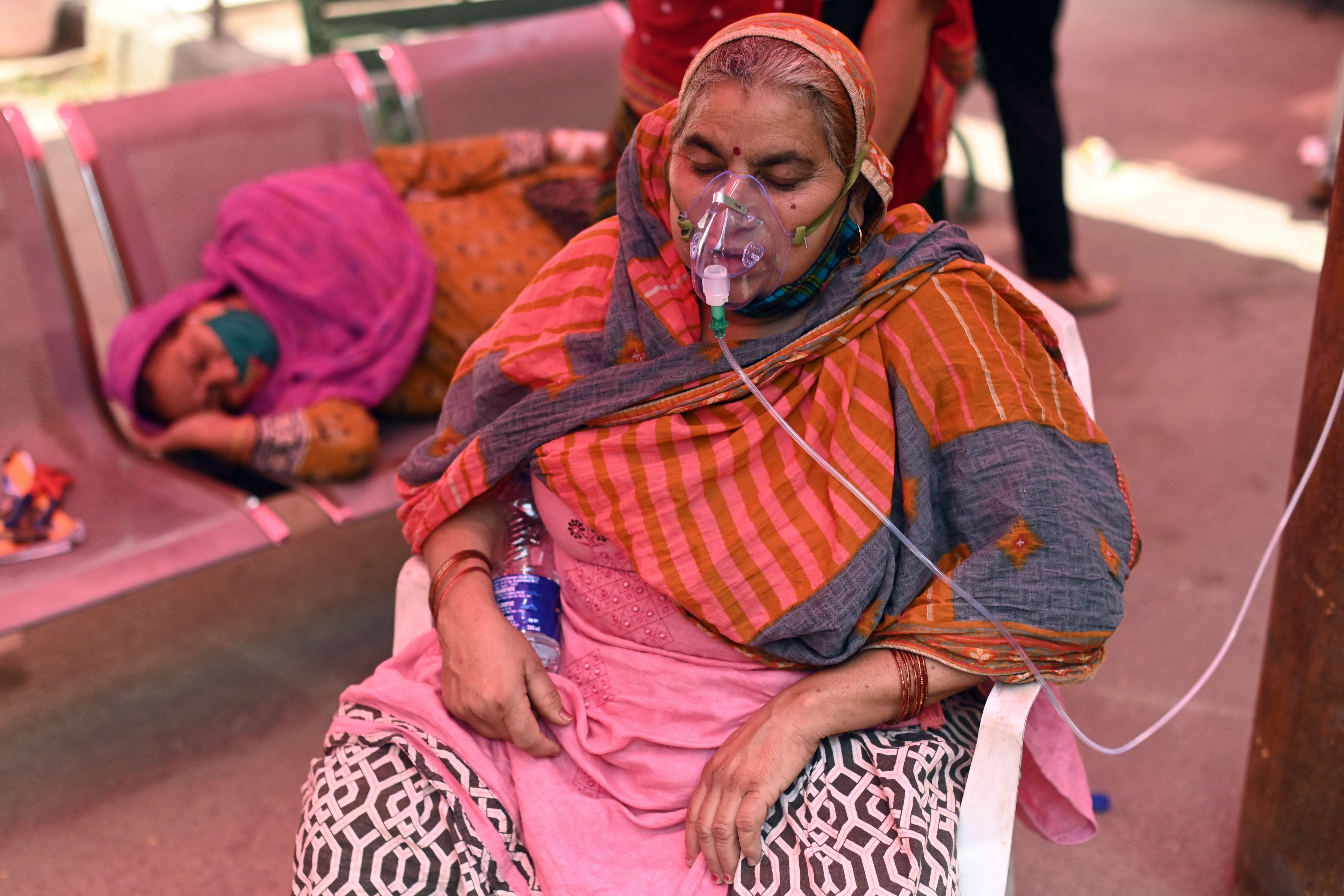Last spring, scenes in Lombardy, Italy, caused panic in Whitehall: buckling healthcare systems and tents pitched outside emergency centres played a large role in the government’s decision to implement a nationwide lockdown. It was thought that the British public could tolerate many of the consequences of Covid-19, but not the idea that the NHS would be unable to cater to those who needed it.
As it happened, the UK’s worst nightmares were never realised. The Nightingale hospitals built to increase capacity were barely used. But what the British government feared most is now taking place elsewhere. India is suffering an exponential growth in infections, with more than 349,000 cases reported yesterday, as well as nearly 3,000 deaths. Hospitals are running out of oxygen for patients and wards are overflowing. There are reports of long queues as the sick wait to be seen by medical professionals. It’s expected the situation will deteriorate further before it gets better.
It’s far too simple to say it’s a selfish desire on the part of the British public that makes it politically difficult to prioritise saving lives abroad
Some countries have responded to India’s cry for help, including the UK, the United States, and France. The UK is sending 600 medical devices, including ventilators, while the US is easing its export bans to allow more raw material for vaccine production to be shipped overseas. But there’s an elephant in the room, a resource that has not yet been deployed to India: vaccines themselves, to aid India in inoculating its most vulnerable and older residents.
In terms of lives potentially saved by these vaccines, there is a strong ethical argument for shipping some of the UK’s supply overseas. All of the UK’s top nine priority groups have been offered their first vaccine now, giving ample protection to the groups that make up 99 per cent of deaths from the virus. From today, 44-year-olds in England are being called to sign up for their jab. Are they really as in need as, say, a vulnerable person in New Delhi?
The scenes are surreal: just last week the PM’s deputy national security advisor was in India trying to secure the five million doses of the Oxford-AstraZeneca vaccine held up in the country (he subsequently brought a Covid-19 infection back with him). Surely at least these doses could be formally relinquished by the UK to help India increase its supply? While the UK has vaccinated more than 50 per cent of its population now with at least one jab, India has managed just under 9 per cent. Britain is seeing the vaccine factor play out in the data, with infection and death rates plummeting while antibody prevalence surges in the population. Meanwhile, the virus bulldozes India.
There is no perfect solution. Even if India received an influx of doses, it would take weeks for the vaccine to take effect, waiting for the rollout and the development of antibodies. Still, there’s no doubt it would save many lives in this latest wave (as happened in the UK) and into the future as well. There is even precedent for shipping some vaccines abroad. This month it was revealed that the UK government had sent 700,000 doses to Australia, the first batches arrived in late February. When the European Union clamped down on vaccine exports, the UK stepped in to help its ally receive crucial doses to protect their most vulnerable. But its actions were kept quiet. Britain didn’t want the world to know about its generosity, and the reason for that decision becomes clear in light of India’s struggles.
Boris Johnson’s ‘roadmap’ to normal life is a nearly six-month journey from when the UK first entered its third lockdown (and is still not guaranteed to deliver freedom). It is by far the slowest release of major restrictions so far. It’s a timeline that is dependent on keeping infection rates very low — and based on the assumption that the majority of adults will have had at least their first jab when restrictions lift. A major diversion of vaccines from British vaccine centres and GP offices to another country risks delaying this timeline.
It’s far too simple to say it’s a selfish desire on the part of the British public that makes it politically difficult to prioritise saving lives abroad. It’s not just festivals and nightclubs that might remain off-limits: daily activities, and core aspects of human interaction, are still illegal. Friends and family are still unable to hug and kiss loved ones due to social distancing; parents forced to visit their newborns during ‘visiting hours’, unable to stay overnight in hospital with their partner who just gave birth. After well over a year of rolling lockdowns and restrictions, to ask people to voluntarily delay the return to normal is a difficult ask indeed.
There is some flexibility in the politics. At the start of the year, cabinet members — including the health secretary — claimed the threshold for reopening was protecting the most vulnerable, not the entire adult population. In the following weeks, their targets took a turn for a far more cautious approach. A willingness to divert back to the original agenda could address currently conflicting goals: to meaningfully support and protect India’s vulnerable while simultaneously letting the British public go free.
Yet there remain no signs that the roadmap and its (vague but strict) criteria will move in a more relaxed direction. As a result, the government continues to wrestle with a vaccine ethics conundrum, aware it could do more to save lives abroad but stuck in political decisions that make it very difficult to do so.








Comments